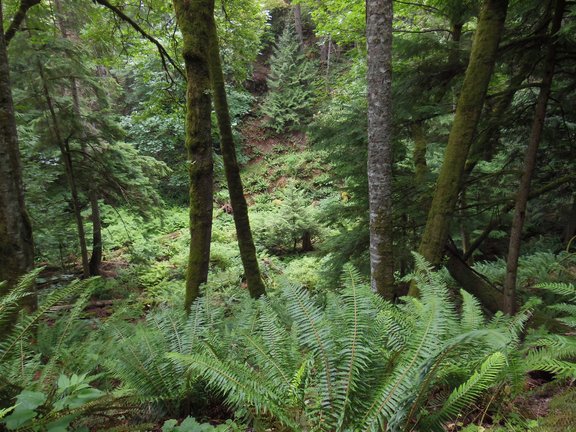Pupping Love: Sharing the Shore
/A speckled bit of fluff. Plaintively pleading black eyes and a squawky cry. You've just spotted possibly the cutest thing ever left on a beach and its mother is nowhere to be found.
Seal pup with newborn fur, called lanugo.
Photo credit Pam Rivers
Harbor seal pups are commonly found on Lummi Island beaches during Salish Sea pupping season from June to September. It is perfectly normal for mother seals to leave their pups on the beach, but mom will not come back to a beach surrounded by humans who mean well, but are not trained responders.
Usually mom will come back in the middle of the night when it is quiet and find her pup.
Harbor seals use shoreline locations for resting locations, called haul-outs. The seals rest out of water to regulate body temperature, interact, and sleep. The best to place to observe a haul-out is on Seal Rocks at the north tip of Lummi Island where North Nugent Road and West Shore Drive met. Bring your binoculars.
A female may give birth anywhere there is easy access to the water. If people get too close, the pup may be abandoned because of "human interference."
If you see a pup,
give it space
Leave pups alone. Do not pour water on seal pups, handle them, or attempt to feed them.
Keep dogs away. Dogs are naturally curious, and seal pups can easily fall prey to unleashed dogs.
Observe from a distance. Stay at least 100 yards away, it's the law.
Alert the Stranding Response Team at (360) 966-8845. Whatcom Marine Mammal Stranding Network is a non-profit authorized by NOAA to conduct investigations and rescues.
Seals are federally protected from harassment and capture by the public. If you observe incidents of people or pets tormenting, disturbing, or attempting to remove a seal from the beach, contact the NOAA Fisheries Enforcement Hotline at (800) 853-1964 to report a violation.Saving Larry
Laramore was found on the island's west shore one Sunday. "Larry" appeared healthy at first, but by Tuesday he was becoming lethargic and shivering for lack of blubber. It is unknown if human activity separated mom and pup, or if his mother was eaten by one of the transient orcas that happened by on Monday afternoon.
Baby Laramore on Lummi Island
A very hard decision was made to take Larry off the beach by the Stranding Response Team. What if his mom comes back?
Larry was a mere 10 pounds, half the proper weight for his age. Taken to Wolf Hollow Wildlife Rehabilitation Center in Friday Harbor, his developed set of teeth allowed a quick transition from fish milkshakes.
Weighing a stout 89 pounds after two months of rehabilitation, Larry was the "biggest blubber ball to ever be released from Wolf Hollow," according to Victoria Souze, Primary Investigator and Education Director for Whatcom Marine Mammal Stranding Network (WMMSN).
"Blubber ball" Larry is released
With tracking number 29 temporarily glued to his head, Larry returned to the sea. The number would help him to be identified at local haul-outs as he joined other seals in the wild.
Where to, Laramore?
Support Whatcom Marine Mammal Stranding Network
You can become a Stranding Response Team member, a Necroscopy Team Member, and Educational and Outreach Team Member, or assist with general support. All training is provided by WMMSN.
Donate by visiting wmmsn.org. Whatcom Marine Mammal Stranding Network is a non-profit corporation 501(c)(3).







